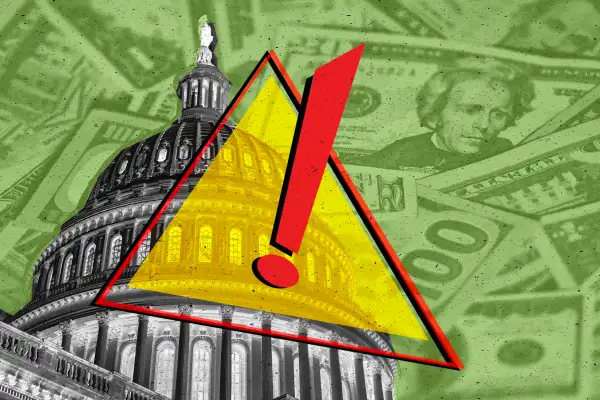Beware of a Boom in Student Loan Scams as Payments Resume

The federal government is reminding student loan borrowers they don’t need to pay anyone for student debt relief programs and warning borrowers to be on high alert for scams.
Federal student loan payments are set to resume in October after they have been paused since March 2020, creating an opportunity for scammers to take advantage of borrowers, according to officials.
In a consumer alert Monday, the Federal Trade Commission (FTC) stressed that “you don’t have to pay for help managing your student loans.”
While there are situations when you may want to pay for professional help managing your student loan debt (for example, to consult a financial planner if you’re in over your head), you never need to pay to access federal repayment plans. And anyone asking you for money in exchange for quick loan forgiveness is a scammer, according to the FTC.
The agency shared an example of an alleged scam scheme by a company named Apex that signed borrowers up to make automatic payments for "debt relief programs," falsely claiming they work with the U.S. Department of Education. "Payments went to Apex’s pockets, rarely making it to actual loan servicers," the FTC says.
State officials have also issued warnings recently about a high incidence of fraud related to student loans and the upcoming payment restart.
Idaho Attorney General Raúl Labrador cautioned in a recent news release that three major types of scams are targeting student loan borrowers: Scammers falsely promising they can arrange lower monthly payments for a fee; fraud schemes that trick borrowers into thinking they can get forgiveness if they pay for a negotiation service; and phone scams in which a fraudster pretends to be a loan servicer asking for payment on overdue debt.
One tell that you’ve encountered a scam is if you’re getting asked for payment upfront before any services have been provided, according to the FTC. Also keep in mind that the Education Department and its affiliated loan servicers will typically reach out to you via email or snail mail; being asked for personal information over the phone is a red flag. The government encourages consumers to report any student loan scams they come across.
Borrowers do have legitimate options to lower their payments as they prepare for the pandemic forbearance to end. (Interest will start accruing on Sept. 1, while the first monthly bills will come in October.) For one, you can check out the new income-driven repayment plan, called Saving on a Valuable Education (SAVE), which will lower many borrowers' monthly payments thanks to a formula change that protects more income from being counted toward student loan bills.
You can check the status of your loans and your repayment options at StudentAid.gov/repay if you have federal loans, or by contacting your loan servicer if you have private loans.
7 Best Identity Theft Protection Services of August 2023
How the Restart of Student Loan Payments Could Hurt (or Help!) Your Credit Score

